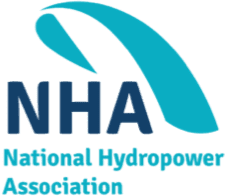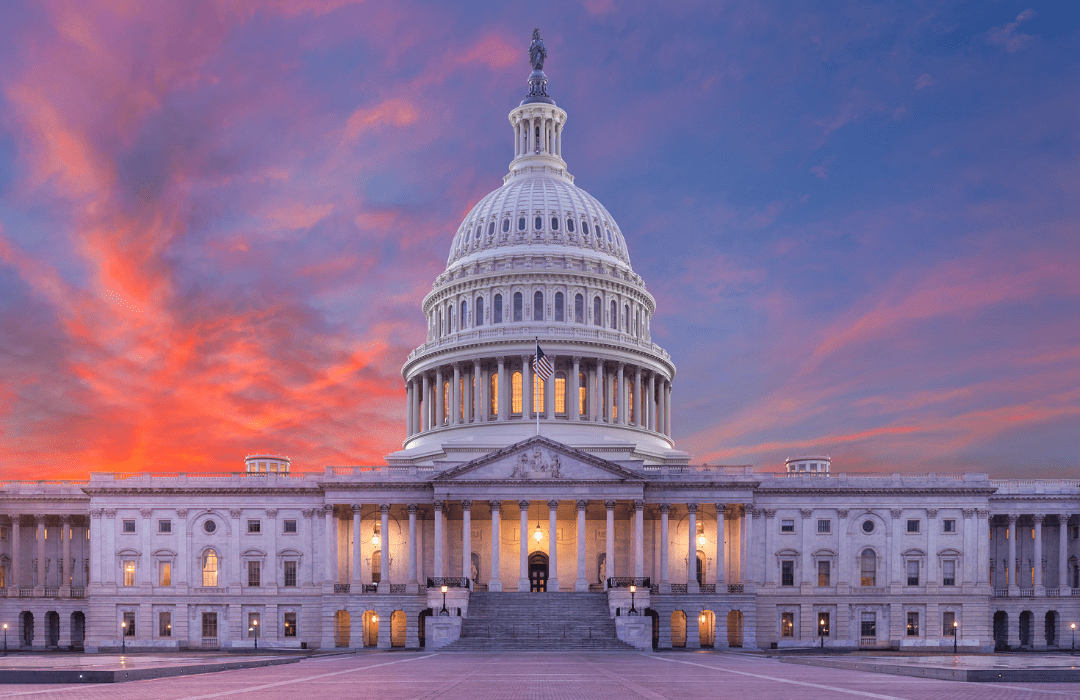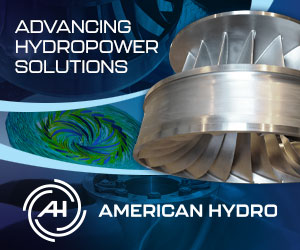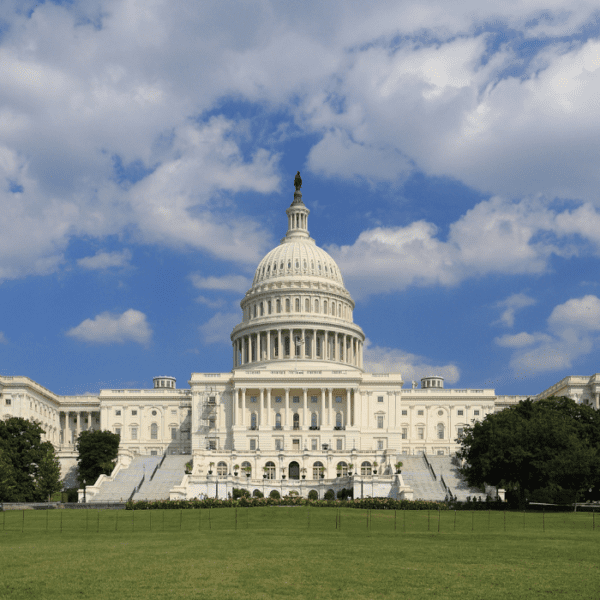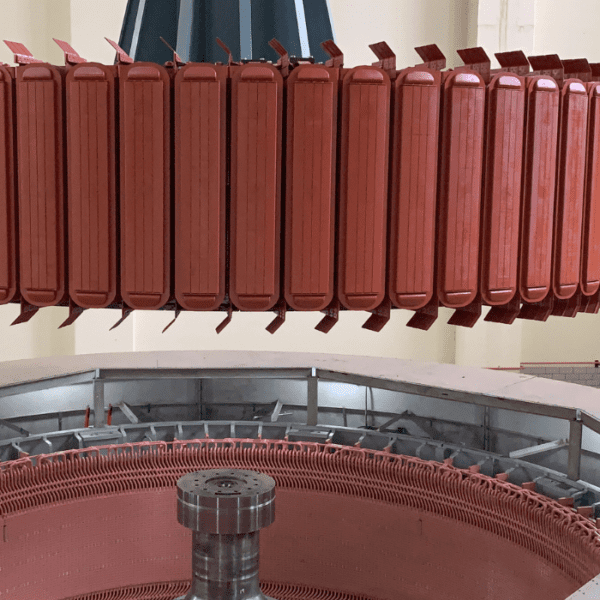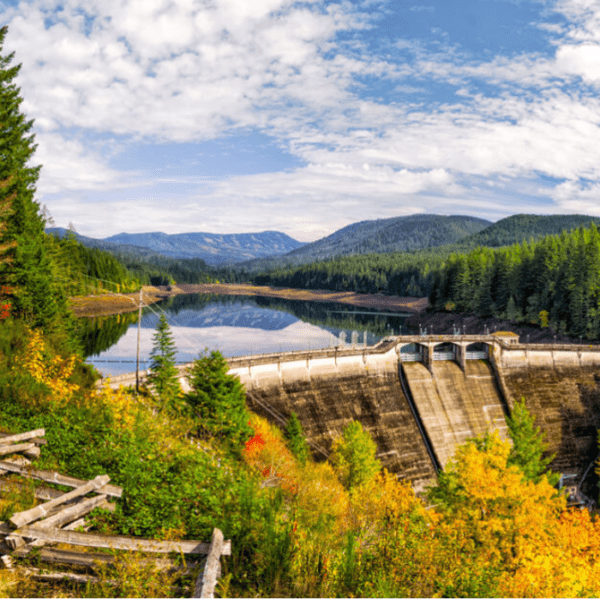With 2024 underway, National Hydropower Association (NHA) has identified both challenges and opportunities for the water power industry as it moves forward with its legislative priorities during the remainder of the 118th Congress.
With an incredibly contentious presidential campaign for the White House looming, as well as control of Congress in 2024, NHA will have to be nimble in its advocacy, as the organization is currently in an environment where congressional action will start to slow down for the year while opportunities to move industry priorities forward might languish until a potential post-election lame duck session.
By understanding what’s at stake for the remainder of 2024, as well as the major items in play for 2025, the water power industry can better mobilize and advocate for legislation and tax credits. With NHA’s Advocacy Day coming up on March 13, 2024, water power advocates will have the opportunity to join together to affect change on Capitol Hill. Advocacy is a powerful tool in securing the industry’s future, and the priorities detailed in the article below provide a roadmap for how this progress can occur.
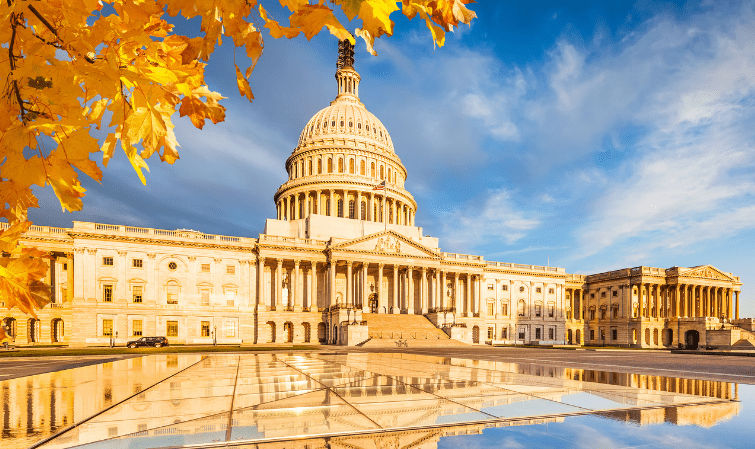
THE PATH FORWARD ON THE EXISTING HYDROPOWER INVESTMENT TAX CREDIT
Currently, the House of Representatives debated and now approved a roughly $80 billion tax package titled the Tax Relief for American Families and Workers Act of 2024 (H.R. 7024). Unfortunately, the hydropower Investment Tax Credit (ITC) is not included due to the reluctance of House Republicans to touch anything energy related, as they continue to harbor frustration and anger with the Democrats for how the Inflation Reduction Act was handled.
With the legislation moving to the Senate for consideration, NHA and its members have an opportunity to urge Senators to amend the tax package to ensure the industry’s priorities are included. At the upcoming Waterpower Week in D.C. (March 13-15), NHA has scheduled an Advocacy Day, where industry members have the opportunity to participate in face-to-face meeting with legislators and their staff on Capitol Hill. Building these relationships with Congressional offices helps to raise water power’s profile while advancing policies that will allow the industry to flourish. NHA provides support with setting appointments and training on how to conduct effective advocacy.
If the water power industry is unable to secure passage of the existing hydropower ITC in the currently debated tax package, then there should be another opportunity next year. It is likely that Congress will consider another tax package in late 2025, which would align with several expiring provisions from the Tax Cuts and Jobs Act that passed in 2017, as well as a handful of other energy credits. While this is not the preferred approach, the industry must prepare for a lengthy advocacy campaign so that when the opportunity comes along to finally pass the tax credit into law, Congress is well educated on why this policy proposal is so critically important to maintaining the existing hydropower fleet and its associated civil infrastructure.
It is also important to provide continuing education on the hydropower ITC throughout the rest of this year, as a lame duck session may materialize after the November elections. There are several examples in recent history when the politics aligned, and Congress has approved significant legislation; the industry needs to be ready for this potential opportunity.
Also, NHA will continue to work closely with the Uncommon Dialogue partners in a unified lobbying approach to passing the tax credit. The more voices that are advocating for industry priorities, the better. Therefore, NHA asks that as your organization participates in other industry trade groups throughout the utility and energy sectors, please socialize your support for the Maintaining and Enhancing Hydroelectricity and River Restoration Act of 2023 (S. 2994 and H.R. 6653).

THE PATH FORWARD ON LICENSE REFORM
For licensing reform, Congress continues to move legislation on either side of the Capitol, which would advance the hydropower industry’s goal of reforming the licensing and relicensing process. At the time of writing, the House licensing reform proposal, the Hydropower Clean Energy Future Act (H.R. 4045), has been approved by the Energy and Commerce Committee on a bipartisan basis, and the hope moving forward is that this legislation will come to the House floor for a vote in the coming months. As many of you may have seen, H.R. 4045’s lead sponsor, Rep. Cathy McMorris Rodgers (R-WA), has recently announced her retirement from Congress, which should create extra incentive for her to move her bill to the House floor and sign a hydropower licensing reform bill into law, securing her legacy as one of the hydropower industry’s staunchest advocates.
On the Senate side, the Community and Hydropower Improvement Act (S. 1521) is still under consideration by the Energy and Natural Resources Committee. NHA is hopeful that through additional refinements the legislation will also receive a committee vote in the coming weeks.
Broadly speaking, additional permitting reform discussions have been limited, and Senate Energy and Natural Resources Chairman Joe Manchin (D-WV) is retiring. While still committed to finding a path forward on permitting reform, which would include Democratic priorities like transmission and Republican priorities like Clean Water Act reform and judicial review, a broader agreement on a grand bargain remains to be seen.
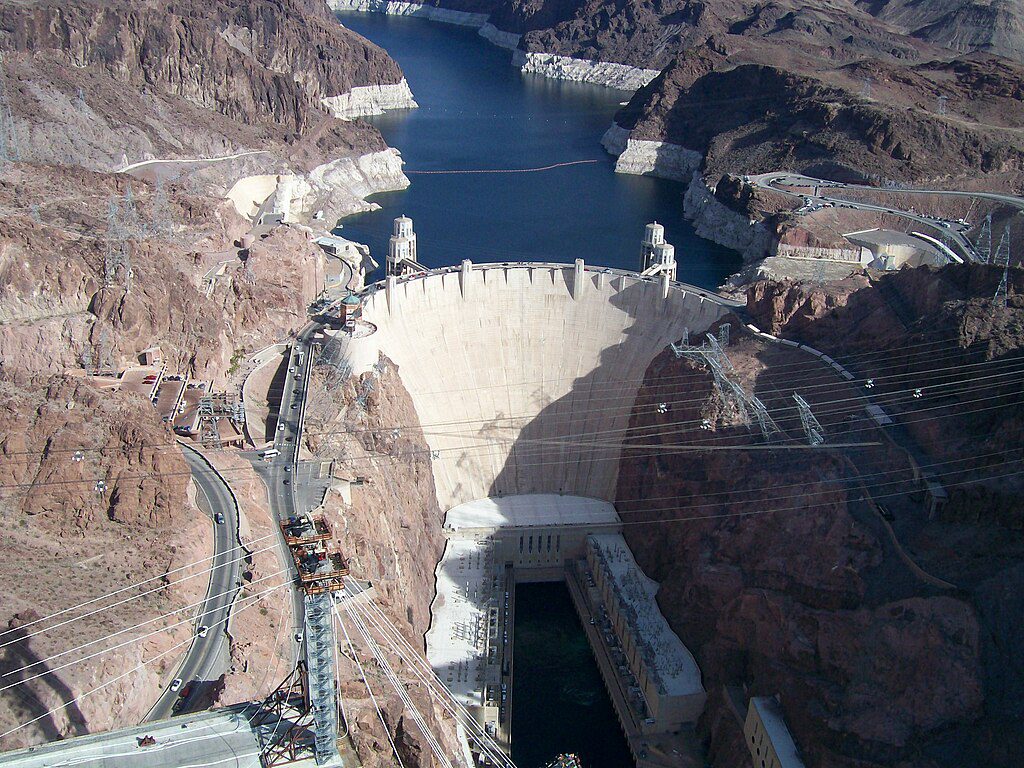
APPROPRIATIONS
The current Fiscal Year (FY) 2024 appropriations process has, to put it lightly, been disjointed and fraught with delay. Congress is now four months into the fiscal year and a resolution to the FY2024 appropriations process finally appears to be in sight. One hurdle remaining is that a small group of Republicans in the House continues to oppose the FY2024 topline funding levels negotiated by House Speaker Johnson and Senate Majority Leader Schumer. In early January, Speaker Johnson announced his support to keep spending levels in line with the negotiated toplines in the Fiscal Responsibility Act, the debt ceiling bill, over the objections of his right flank.
NHA is concerned that the Water Power Technologies Office (WPTO) could see significant cuts in proportion to the negotiated reductions in the broader spending deal, as Congress negotiates the individual funding bills, including the Energy and Water Development Appropriations measure. Currently, NHA is working to convince the Appropriations Committee leadership to support as high a funding level as possible for hydropower, pumped storage, and marine energy commercialization efforts.
Looking forward to FY2025, Congress will likely need to conduct its work on both FY2024 and FY2025 concurrently to keep the FY2025 process on time, ensuring that it does not incur the delays that have beset the FY2024 process.
For FY2025, NHA is working on a new appropriations request, which should be of significant interest and benefit to hydropower asset owners. NHA has seen very high demand from the industry for hydroelectric incentive funds to be made available under the Bipartisan Infrastructure Law.
In FY2025, NHA will advocate to refill the Energy Policy Act Section 242, 243, and 247 incentives administered by the Grid Deployment Office. This effort will be in addition to the organization’s ongoing advocacy work in support of WPTO and its research, development, and demonstration activities for hydropower, pumped storage, and marine energy commercialization.

FOR MORE INFORMATION
This February is critical for water power advocacy connected to tax legislation; specifically, the inclusion of NHA’s bill in any larger deal. For those planning on attending Waterpower Week, as you start planning your trip to Washington, D.C., begin your preparation by reaching out to legislators, which will help with follow-up when you meet with their office during Advocacy Day to discuss support of S. 2994 and other water power priorities.

